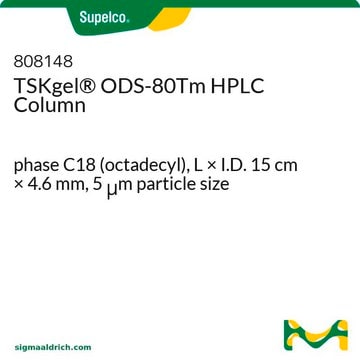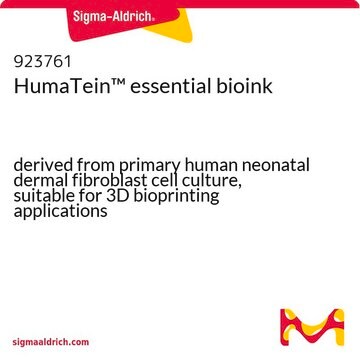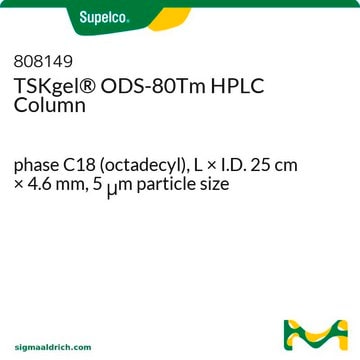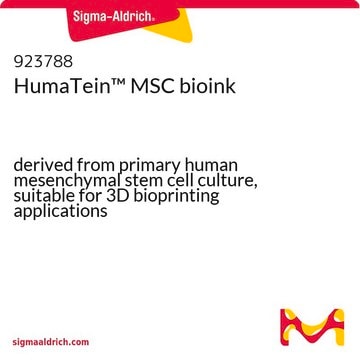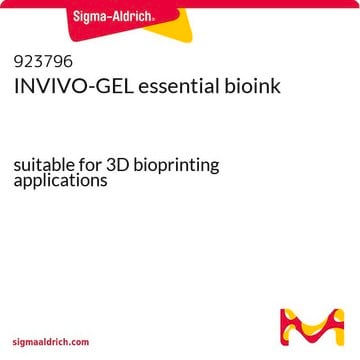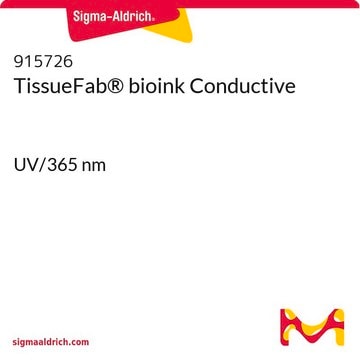923745
INVIVO-GEL BMP2 bioink
suitable for 3D bioprinting applications
Synonym(s):
3D bioprinting, 3DBP, ECM
Sign Into View Organizational & Contract Pricing
All Photos(1)
About This Item
UNSPSC Code:
12352201
NACRES:
NA.23
Recommended Products
Quality Level
storage temp.
2-8°C
Application
INVIVO-GEL BMP2 bioink is specifically developed and optimized for 3D bioprinting applications. The INVIVO-GEL BMP2 bioink kit includes optimally formulated BMP-2 mimetic peptide conjugated gelatin-based hydrogel complex packed in syringe for easy dispensing. The kit also includes Gel-linker, which reinforces mechanical stability. A transparent hydrogel forms when contents are properly mixed and exposed to UV light. This bioink is capable of generating mechanically stable 3D structures that can be maintained for days in the culture environment. BMP-2 is a potent osteoinductive growth that belongs to the transforming growth factor-â (TGF-â) protein superfamily. BMP-2 stimulates MSCs towards osteogenic differentiation, and significantly increased bone formation.
Components
INVIVO-GEL BMP2 in syringe 5mL x 2
Gel-linker(A) powder 500µL x 1
Gel-linker(B) powder 1µL x 1
Gel-linker(A) powder 500µL x 1
Gel-linker(B) powder 1µL x 1
Signal Word
Warning
Hazard Statements
Precautionary Statements
Hazard Classifications
Eye Irrit. 2 - Skin Sens. 1
Storage Class Code
11 - Combustible Solids
WGK
WGK 3
Certificates of Analysis (COA)
Search for Certificates of Analysis (COA) by entering the products Lot/Batch Number. Lot and Batch Numbers can be found on a product’s label following the words ‘Lot’ or ‘Batch’.
Already Own This Product?
Find documentation for the products that you have recently purchased in the Document Library.
Michelle T Poldervaart et al.
PloS one, 8(8), e72610-e72610 (2013-08-27)
The design of bioactive three-dimensional (3D) scaffolds is a major focus in bone tissue engineering. Incorporation of growth factors into bioprinted scaffolds offers many new possibilities regarding both biological and architectural properties of the scaffolds. This study investigates whether the
Gelatin methacryloyl and its hydrogels with an exceptional degree of controllability and batch-to-batch consistency
Zhu et al.
Scientific Reports, 9 (2019)
Shining Xiao et al.
Stem cell reviews and reports, 15(5), 664-679 (2019-06-04)
Gelatin methacrylate (GelMA)-based hydrogels are gaining a great deal of attention as potentially implantable materials in tissue engineering applications because of their biofunctionality and mechanical tenability. Since different natural tissues respond differently to mechanical stresses, an ideal implanted material would
Kan Yue et al.
Biomaterials, 73, 254-271 (2015-09-29)
Gelatin methacryloyl (GelMA) hydrogels have been widely used for various biomedical applications due to their suitable biological properties and tunable physical characteristics. GelMA hydrogels closely resemble some essential properties of native extracellular matrix (ECM) due to the presence of cell-attaching
Designing Gelatin Methacryloyl (GelMA)-Based Bioinks for Visible Light Stereolithographic 3D Biofabrication.
Kumar H, et al.
Macromolecular Bioscience, 11 (2020)
Our team of scientists has experience in all areas of research including Life Science, Material Science, Chemical Synthesis, Chromatography, Analytical and many others.
Contact Technical Service